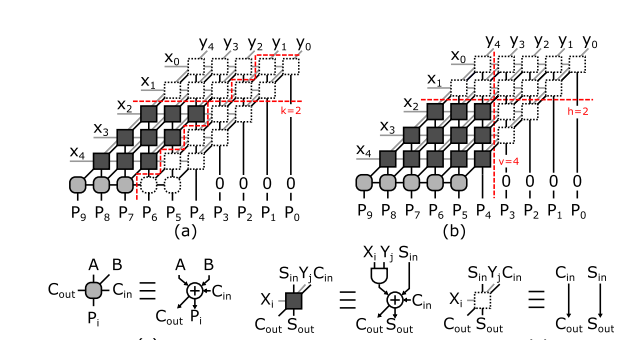Scalable Construction of Approximate Multipliers with Formally Guaranteed Worst Case Error
Objective
This is demonstrated by means of a comparative evaluation of approximate 16-bit multipliers constructed by the proposed method and other methods in the literature.
Abstract
Approximate computing exploits the fact that many applications are inherently error resilient. In order to reduce power consumption, approximate circuits such as multipliers have been employed in these applications. However, most current approximate multipliers are based on ad hoc circuit structures and, for automated circuit approximation methods, large efficient designs are difficult to find due to the increased search space. Moreover, existing design methods do not typically provide sufficient formal guarantees in terms of error if large approximate multipliers are constructed. To address these challenges, this brief introduces a general and efficient method for constructing large high-quality approximate multipliers with respect to the objectives formulated in terms of the power-delay product and a provable error bound. This is demonstrated by means of a comparative evaluation of approximate 16-bit multipliers constructed by the proposed method and other methods in the literature.
NOTE: Without the concern of our team, please don't submit to the college. This Abstract varies based on student requirements.
Block Diagram

Specifications

Contact Us
- info@takeoffprojects.com
- +91 9030333433, +91 9393939065





 Paper Publishing
Paper Publishing
